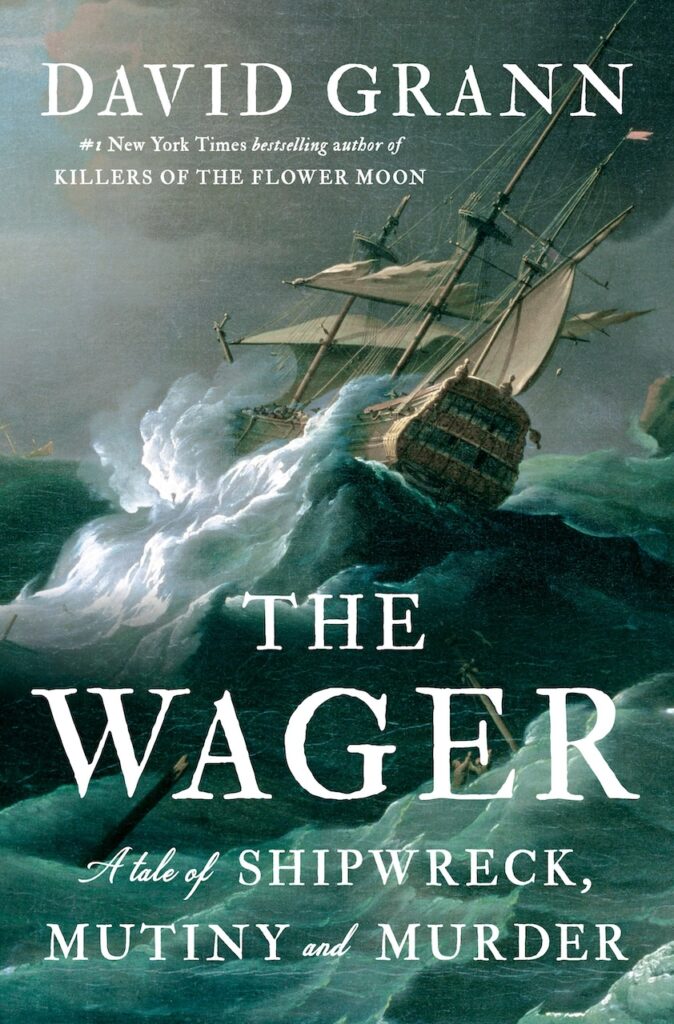“The Wager: A Tale of Shipwreck, Mutiny, and Murder”
David Grann, Doubleday (2023)
352 pages, $30
Stories of human triumph and resilience are attractive – a narrator’s sure thing.
In fact, this may be what draws us into the stories of the saints, whose holiness carries with it a supernatural strength to endure trials, from the martyrs of ancient Rome to St. Maximilian Kolbe at Auschwitz. In “The Wager: A Tale of Shipwreck, Mutiny, and Murder,” David Grann recounts a true story that could have been a beautiful tale of survival under the leadership of a competent commander, but that too often reminds us of “Lord of the Flies.”
In May of 1741, under the leadership of Captain David Cheap, the HMS Wager was shipwrecked on an island off the south coast of Chile. The captain lost control of his crew almost immediately, as some members began stealing provisions while the rest of the crew was starving, leading to a deep mistrust among the men. Cheap was the captain of a ship, but without being on the sea, he had no idea how to organize and command his men on a journey of survival.
Confidence in Captain Cheap’s leadership quickly waned — what ensued was absolute mutiny. Despite strict maritime laws that promised punishment for severe disobedience toward a captain, the crew knew their only way to survive would be under the leadership of one of their own. So, they devised a plan to escape the island and head toward Brazil guided by the ship’s gunner, John Bulkley.
Reading “The Wager” through a Catholic lens gives readers a harrowing true story that tells of God’s providence amid scarce resources. From finding mussels to eat and reusing parts of other boats to attempt to leave the island — and even through the unexpected help of a group of indigenous people who had been taught to fear Europeans — the ways that God provided for the men of the Wager were creative and more than suggested divine intervention. Even some crew members explicitly declare that God is with them and sustaining them; they named one of the ports in the story the “Port of God’s Mercy.”
Juxtaposed with God’s merciful providence, though, is the reality of human depravity — our tendency towards selfishness that quite literally leads to death. The HMS Wager’s men are focused entirely on survival, but without an effective leader to unite them for a common cause, they can only perceive each other as the enemy. Instead of understanding how shared rations as key to making it off the island alive, they see them to be the source of their starvation. When conflicts arise, the only solution they can imagine is to kill their fellow crew members in order to survive.
The irony of the story of “The Wager” is that it was human ingenuity and ambition that created the crisis of the shipwreck; yet only God could rescue them from it. In the end, this is an engaging story that accidental witnesses to God as our loving Father, who rescues us not only from shipwrecks, but from our own sins that are deserving of death, offering us the freedom of eternal life.

